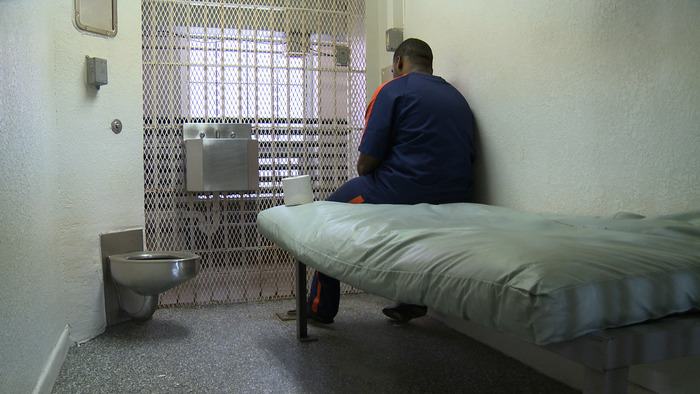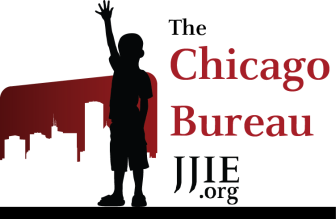 From The Chicago Bureau:
From The Chicago Bureau:
The John Howard Association of Illinois, an independent prison watchdog and justice reform advocate, recently published a report introducing ways to reform the criminal justice system for youth prosecuted for serious offenses. This report takes a unique approach in asking the population in question about their experiences in the judicial system. Their responses were taken as a new framework in determining the fairness and effectiveness of the current system for youth prosecuted for serious crimes.
 In past years JHA has worked to improve the criminal justice system’s response to youths who are prosecuted as adults in Cook County, Ill. In this research process, JHA conducted in-depth interviews with six young people who were prosecuted and convicted of adult crimes when they were at ages 15, 16 and 17. Those interviewed are currently still incarcerated in the Illinois Department of Corrections, serving sentences from 12 to 20 years.
In past years JHA has worked to improve the criminal justice system’s response to youths who are prosecuted as adults in Cook County, Ill. In this research process, JHA conducted in-depth interviews with six young people who were prosecuted and convicted of adult crimes when they were at ages 15, 16 and 17. Those interviewed are currently still incarcerated in the Illinois Department of Corrections, serving sentences from 12 to 20 years.
“What’s powerful about the kids’ story was that no one was denying that they did something wrong,” said John Maki, executive director of JHA of Illinois. “They just wanted accountability and wanted a system that was accountable.”
The names of the six youths interviewed were changed to protect their privacy. But in their pseudonyms, we hear the real accounts of those whom we have decided to incarcerate in the adult justice system.
Travis is a 17-year-old African-American male youth serving a 15-year sentence for armed robbery in an adult prison in southern Illinois. He was intermittently raised by his aunt because his parents were incarcerated. At age 16, Travis was automatically charged as an adult with armed robbery with firearm, but he pled guilty to the lesser offense. Because of instability at home with no one to take care of him, Travis said by age 12 he was hanging out with a gang, which for him was just a natural part of growing up in his neighborhood.
When discussing the effectiveness of our criminal justice system, Maki said that on a basic level, an effective system is one that is fair and one that people can trust. But trust is hard to establish between the police and various Chicago communities.
“They took my whole family from me — mother, father, uncle — and locked them up,” said Travis when explaining his deep-felt hatred and distrust for the police.
For kids of age 17 or 18, there is gap that needs to be addressed in terms of their needs in the criminal justice system. According to Maki, there is not much to be gained for them in the juvenile justice system and they are too young for the adult system. In other words, youths who fit into this age category are developmentally distinct and there should be more specific policy changes to address those who are stuck in between two worlds.
After his sentence, Travis was sent to the Northern Reception and Classification Center at Stateville prison, where he lived in segregation conditions for two months. This meant he was locked in his cell for 23 hours a day and was not allowed any family contact.
Reflecting on his time during incarceration Travis said, “If you lock people up and don’t teach them something, it’s a lose/lose situation.”
Looking beyond just the crimes committed by these youths, the report also points to an underlying civic issue that has to do with our society. For example, many of the youths interviewed explained how guns and violence were just a routine part of their lives growing up. In their world, where some have suffered abuse as a child and had no parents to take care of them, the kids turn to gangs simply “because they want a family.”
“We’ve looked to the justice system to solve what is essentially our civic system,” said Maki.
According to the study, many youths are unaware that they could be prosecuted as adults prior to their being prosecuted under Illinois’ automatic transfer laws. Currently the American justice system separates juveniles from adults based on age and transfer. The majority of states end their juvenile jurisdiction at age 17, meaning once a youth turns 18, his or her case will be handled in the adult criminal justice system.
However, all states have laws that allow youths under the age of 18 to be transferred to adult court in certain cases. As the JHA report indicates, there are three kinds of statutory transfer mechanisms. First, there is the judicial waiver, which enables juvenile judges to waive jurisdiction over individual cases. Second, prosecutorial discretion laws specify certain kinds of cases over which prosecutors have the sole power to decide where to try the youth. Lastly, in automatic transfer or statutory exclusion laws, the criminal justice system is given an exclusive jurisdiction over certain kinds of cases that meet statutorily designated age and offense criteria.
In fact, automatic transfer is one of the main contentions about juvenile justice reform. In this case, older teens who have committed serious crimes were examined, and whether or not our system treats them fairly. One of the holdbacks in this area of policy reform ultimately may be perception.
Maki said there is a limitation to how we think about children, and people seem to have a hard time imagining that children can do horrible things.
“We magically transform them into adults so we don’t have to think about it,” Maki said. “But it is a fake solution.”
The study found that the criminal justice system’s responses were seen as “illegitimate, unequal, arbitrary, and racist from the eyes of young offenders,” and provided a four-step recommendation for policymakers to improve the current system.
(4 recommendations as written in the report)
- Empower judges to determine whether serious young offenders should be tried in juvenile or criminal court, regardless of the crime they are accused of committing.
- Provide young offenders with greater access to counsel during police encounters and pre-trial custody.
- Ensure that attorneys and judges who deal with this population are trained in adolescent brain development and how to effectively communicate with young people.
- Establish separate correctional facilities, treatment programs and a sentencing scheme that takes into account young offenders’ mental immaturity and ongoing development.
Civil issues along with our justice system may have created a negative feedback loop that put certain populations of youths in a conflicting position. However, here the public is hearing what the youths have to say about their experiences with the justice system and how they think it can be improved. While policy reforms take time, reformers believe there are little steps public can take now to be headed in the right direction.
To read the JHA report, please visit the site: http://thejha.org/words.
This story produced by the Chicago Bureau.

Pingback: Why Solitary Confinement Hurts Juveniles More Than Adults; News Roundup | Reclaiming Futures
Pingback: October 15th Summary | Corrections Reform Newswire